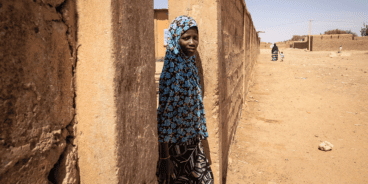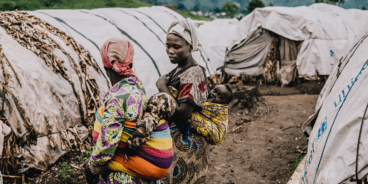
Atrocity Alert No. 63: Iraq, South Sudan and the Democratic Republic of the Congo
Atrocity Alert is a weekly publication by the Global Centre for the Responsibility to Protect highlighting situations where populations are at risk of, or are enduring, mass atrocity crimes.
Iraq
On 9 July the Prime Minister of Iraq, Haider al-Abadi, announced the successful liberation of Mosul from the so-called Islamic State of Iraq and the Levant (ISIL), marking the formal end of the military offensive that began on 17 October 2016.
Civilians bore the brunt of the nine-month campaign, with the indiscriminate use of weapons in densely populated areas leading to widespread death and displacement. ISIL militants regularly used civilians as human shields and targeted and killed those attempting to flee territory under their control. Some members of the Iraqi Security Forces (ISF) and Kurdish Peshmerga have also reportedly carried out forced evictions and extrajudicial killings.
According to the UN Office for the Coordination of Humanitarian Affairs, at least 700,000 people remain displaced from their homes in Mosul. The battle for Mosul also resulted in catastrophic damage to much of the city, including the historic Al-Nuri Mosque, which was deliberately destroyed by ISIL on 21 June. Intensive airstrikes by the United States, in support of the ISF and Peshmerga, also resulted in an unknown number of civilian casualties.
While the recapture of Mosul is a significant victory over ISIL, the conflict in Iraq continues. ISIL still holds territory in Kirkuk, Ninewa and Anbar governorates, and continues to pose a terrorist threat to both the security forces and the general populace. Although the immediate priority of the Iraqi government and the international community should be to address the grave humanitarian situation and facilitate reconstruction efforts, a comprehensive reconciliation strategy is also essential.
The crimes committed against civilians in Mosul clearly amount to war crimes and crimes against humanity and all perpetrators, regardless of affiliation, must now be held accountable. In this regard, the UN Security Council should immediately take forward a proposed initiative to establish an international investigative commission to collect and protect evidence of all atrocity crimes perpetrated in Iraq, including the genocide against the Yazidi. Ending impunity will help facilitate a sustainable peace in Iraq.
South Sudan
On 9 July South Sudan marked the 6th anniversary of its independence. On that day President Salva Kiir called upon rebel groups to declare a ceasefire and said that it “is no longer justifiable to fight on as this only leads to the loss of innocent lives, the destruction of properties, and delays in building our country.”
Three days prior to this declaration, the government launched a major offensive against rebel forces in the Upper Nile area, including the towns of Guelguk, Mathiang and Pagak. According to the UN Office for the Coordination of Humanitarian Affairs, the fighting has displaced thousands of civilians. Aid workers have also been forced to relocate from Pagak and surrounding areas, leaving 50,000 civilians cut off from crucial humanitarian assistance. The loss of Pagak, a major stronghold of the Sudan People’s Liberation Army in Opposition (SPLA-IO), would be a significant military defeat for the rebels.
Despite the 2015 Peace Agreement and a unilateral ceasefire declared by the government during May, fighting between the army and rebel groups has continued unabated in several parts of the country.
Democratic Republic of the Congo (DRC)
Today, 12 July, the UN peacekeeping mission in the DRC (MONUSCO) announced the discovery of another 38 mass graves across six sites in the Kasai region. This discovery was the result of a joint mission by MONUSCO and government investigators and brings the total number of mass graves identified in the Kasai region since August 2016 to 80. The discovery of these mass graves demonstrates the gravity of the crisis in the Kasais and the direct threat to civilian populations as government forces continue to battle with the Kamuina Nsapu militia.
As reported in the 28 June Atrocity Alert, the conflict in the Kasai region has also developed into a major humanitarian crisis, with 1.4 million people displaced over the past year. The Catholic Church in the DRC has reported that more than 3,300 people have been killed as a result of the violence.
All mass graves and evidence of crimes perpetrated in the Kasai region need to be urgently investigated by a credible and independent mechanism. It is essential that the team of experts mandated by the UN Human Rights Council on 23 June be immediately dispatched to the DRC and that the government fully cooperates with their investigation.
Related Publications


